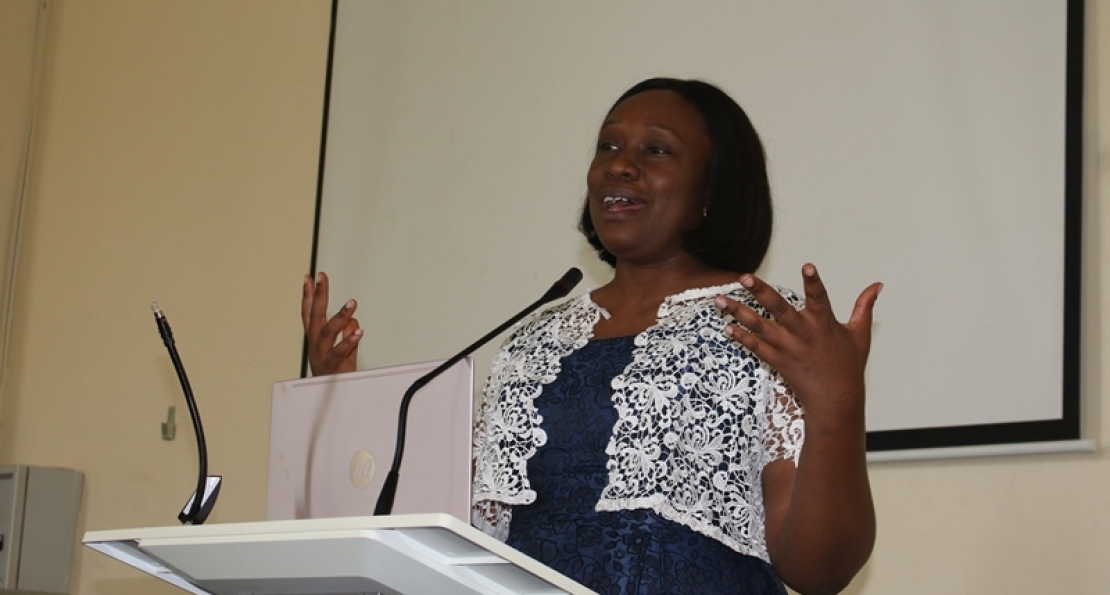At the School of Law seminar held on November 1, 2019, Dr. Erebi Ndoni, charged patients and their relatives to demand and fight for their rights where there is any observed case of medical negligence during treatment.
"The most common basis of liability in medical practice is negligence which is the improper or unskilled treatment of a patient. We should all take action, by knowing our rights and reporting cases of infringement to the appropriate authorities."
Her topic was 'Medical Negligence in Nigeria: Evaluating the Role of the Duty of Care.'
She went on to list the many challenges in the healthcare system, maintaining that there was an urgent need for reform. These challenges include the lack of basic infrastructure, human resources, the motivation of personnel, brain drain, and the underfunding of hospitals.
"These challenges have graduated from being an anomaly to the norm. The distrust for the sector is evident from the fact that public officials seek medical attention abroad and are not ashamed to admit."
One area which requires reform is the attitude of some medical professionals when executing the duty of care to their patients, a situation she described as shocking.
"The doctor-patient relationship is an example of a situation where the law imposes the Duty of Care which if breached should attract damages for the claimant and liability of the medical personnel."
She highlighted the provisions of the Medical and Dental Practitioners Act Cap M8, Laws of the Federation of Nigeria 2004 and the Code of Medical Ethics in Nigeria, on the subject matter. The Code stipulates the duties of medical practitioners, especially in emergencies, and defines forms of professional negligence which include failure to attend promptly to patients, incorrect diagnosis, and incompetence in patients' assessment.
She opines that there ought to be a standard of care required of medical doctors in Nigeria rather than care being left to the whims and caprices of medical practitioners.
"Patients need to be aware of this standard and enforce compliance and accountability if there is suspicion of medical negligence. While the social problems in Nigeria outside the control of medicine are acknowledged, the duty of care of medical practitioners should not be compromised."
Dean of the School of Law, Professor Lawal Mohammed Ahmadu, highlighted the necessity of the discourse, stating that "The human body needs a lot of care and attention and the people who are responsible for this care are medical health workers. Very often, the law has to step in because there might be missteps in the process of the administration of health care systems."
He further said that criticizing the system did not mean hatred for the system. "What we want is for the system to be remediated in such a way that it performs effectively."
The presentation generated a lot of comments and questions from the attendees on the course of action against medical negligence cases.
Another law faculty member, Ms. Olanike Adelakun, wanted to understand what obtains in a case that involves a patient refusing blood transfusion due to religious belief as against the medical personnel's conviction that such a patient needs it.
Mr. Habib Usman, a medical law expert emphasized that the consent of the relatives of the patient will be sought if it is an emergency.
Dr. Paul Dogara, a medical practitioner, also highlighted that the doctor could utilize other alternatives like blood supplements depending on the actual circumstances.
Dr. Jennifer Heaven Mike submitted that the major challenge in trying to report medical negligence is usually how to prove it. Dr. Ndoni believes the pathway to reporting incidents commences with the knowledge of the duty of care and the expectations of patients.
A second-year Law student, Yusuf Shuaibu, shared an experience in which he had encountered medical practitioners being negligent.
Dr. Ndoni's investigation into medical negligence is still evolving and will include other health practitioners besides doctors.
Reported by Omorogbe Omorogiuwa


